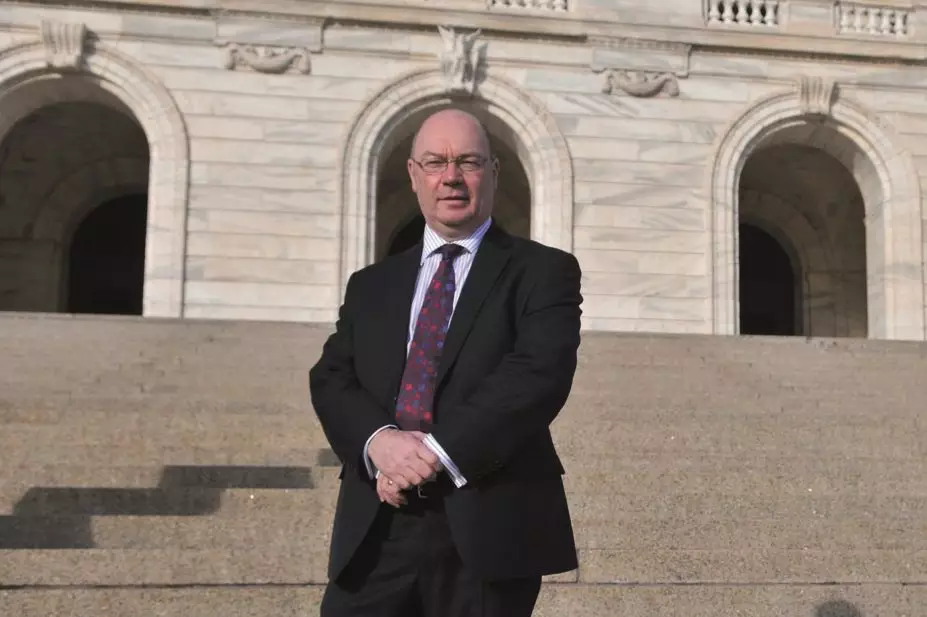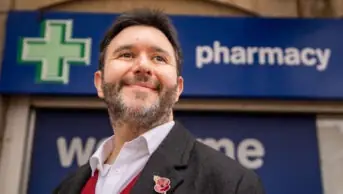
Department of Health
Alistair Burt was appointed Minister of State for Community and Social Care at the Department of Health in May 2015. He entered the UK parliament for the first time in 1983 and was elected Conservative MP for north east Bedfordshire in 2001. Burt was Parliamentary Under Secretary of State then Minister of State at the Department of Social Security from 1992 to 1997, and Parliamentary Under Secretary of State at the Foreign and Commonwealth Office from 2010 to 2013.
How does the government intend to engage with healthcare professionals to implement the provision of seven-day NHS services?
Around 6,000 people lose their lives every year because we do not have a proper seven-day service in hospitals, and outside hospitals people are tired of struggling to get GP appointments that suit their working patterns or family life. We do not just get ill between 9 to 5, Monday to Friday. This is why delivering a seven-day service across the NHS is one of the Government’s top priorities.
Many doctors are already working in this way but we need everyone to get on board. If anyone is in any doubt over why we are doing this they should simply ask themselves: would they be happy for their own family to be admitted to hospital on a Saturday or Sunday when it is up to 16% more likely that they will die simply because they fell ill at the weekend?
The Health Secretary recently set out how he plans to reform the consultant contract to remove the clause that currently allows doctors to opt out of non-emergency work during evenings and weekends. This was something introduced in 2003 by the Government of the day and has meant some doctors are being paid as much as £200 per hour to work at these times. By removing this opt-out for newly qualified doctors we can make our weekend services safer and end these expensive off-contract payments and invest that money in patient care instead.
Primary care has just as an important role to play in this because, if patients can’t get the care they need in their community, they will simply go to where the ‘lights are on’: our accident and emergency wards. In May 2015, the Health Secretary set out our new deal for GPs, with his plans to boost the primary and community workforce by 10,000, including 5,000 more doctors in general practice, and increase investment in surgeries and services. In return, GPs are being asked to join the 2,500 practices across England already working towards offering appointments seven days a week. The measures will help the profession transform the way our family doctors care for their patients and deliver the NHS’s own vision for a preventative health service.
Primary care is much broader than general practice and we need to help the public to understand the other skilled professionals that are available in their community. I regard pharmacists as an untapped resource in our health service. As experts in medicines, they can help people manage their conditions and take some of the pressure off our GPs. That’s why it makes complete sense to give them the ability to access patients’ summary care records, where appropriate. As part of his new deal for general practice speech, the Health Secretary announced that we are investing up to £7.5m to give community pharmacists the training and tools they need to access a patient’s summary care record. A pilot has already shown that, as a result of this, as many as nine out of ten people can get the help they need from their pharmacist without having to be sent to another service. I encourage all community pharmacists to get involved and further improve the care we can give people in their communities.
As many as nine out of ten people can get the help they need from their pharmacist without having to be sent to another service
What is your immediate top priority as the newly appointed minister of state for community and social care?
Three-quarters of mental health problems in adult life start before the age of 18. We know that at least one in ten children and young people aged between 5 and 16 years have a diagnosable mental health illness. That is around three children in every class.
That’s why my priority will be mental health and, more specifically, children and young people’s mental health. A broken mind must be treated with the same urgency and care as a broken leg and I’ll be making sure people of all ages have the mental health services they need when they need them.
Elsewhere, I’ve spent the first weeks in the job getting to grips with a broad and deep set of responsibilities including adult social care, autism, integration, physical and learning disabilities, primary care, even dentistry and ophthalmic service. It’s a diverse and daunting but fascinating remit.
I’ve met, spoken to and learnt from so many people throughout the health and social care sector. We’ve made a lot of progress in the past few years under Jeremy Hunt’s leadership, and my predecessor Norman Lamb has left me with a fantastic legacy so I think you will see more of a continuation of progress already made rather than a dramatic change in direction.
My priority will be mental health and, more specifically, children and young people’s mental health
Is the National Institute for Health and Care Excellence’s (NICE) criteria for assessing health technology curbing pharmaceutical innovation?
The National Institute for Health and Care Excellence (NICE) is an internationally renowned body of which we are, quite rightly, proud. And NICE will continue to evolve, as it has done since it was established.We want to harness the advances being made in medicines, medical technologies and digital products and revolutionise the speed at which 21st century innovations get to NHS patients and their families.The Accelerated Access Review, set up by George Freeman, Minister for the Life Sciences, is looking at how we do just that. He is clear that the review must consider both cost-effectiveness and affordability, reflecting the resource environment facing the NHS and the review will not overlook the responsibilities of existing statutory bodies, including NICE. It will explore all the opportunities to accelerate access for patients. NICE is, of course, fully engaged in the review.
Does the government plan to devolve health and social care budgets to other areas of England as it has done in Greater Manchester?
We want local areas to have the power to decide what is best for their communities and strongly support the move towards more devolution of health and social care. In Greater Manchester this will begin from April 2016 and lead to better services and improved results for patients.
But work has already begun across England to join up health and care services so people get the coordinated care they need outside hospital and at a time that suits them. Our £5.3bn Better Care Fund is getting local NHS and councils working together to prevent people from becoming ill and provide care services seven days a week so we avoid unnecessary stays in hospital.
The Royal College of General Practitioners and the Royal Pharmaceutical Society have jointly proposed that pharmacists working in GP practices could help to alleviate the shortage of GPs. Do you agree with this proposal?
I am supportive of this initiative and it is great to see the medical and pharmacy professions working so closely together. That is what our modern primary care system should be all about.
I am pleased that NHS England has gone further and announced a new £15m scheme to fund, recruit and employ clinical pharmacists to work alongside GPs to help ease current pressures in general practice, improve patient safety and address the shortage of GPs. Having a pharmacist on site will mean that general practice patients will be able to benefit from their expertise in medicines, especially those with long-term conditions or on multiple medicines.
Having a pharmacist on site will mean that general practice patients will be able to benefit from their expertise in medicines
The previous government committed to decriminalisation of genuine dispensing errors by pharmacists. When is it going to happen?
We remain committed to reviewing the criminal offences in sections 63 and 64 of the Medicines Act 1968 in relation to genuine dispensing errors made by regulated pharmacy professions, operating from regulated pharmacy premises.
We have consulted on our proposals and the responses we have received are now being carefully considered. We will respond in due course and are working towards bringing legislation before Parliament later this year.


